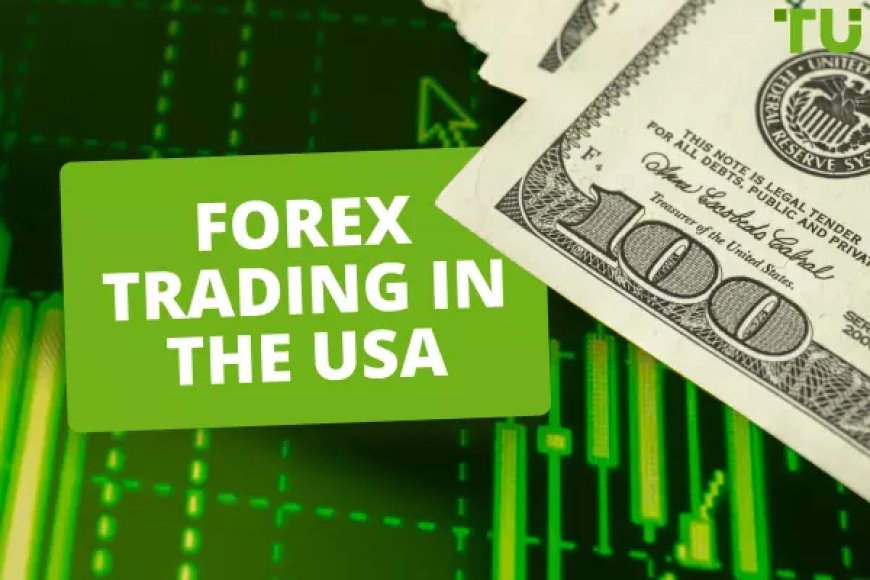Forex Trading United States
Forex Trading United States Discover expert insights and strategies for Forex trading in the United States. Stay informed with the latest market trends

Forex Trading in the United States: A Comprehensive Guide
Forex trading, or foreign exchange trading, is one of the most lucrative and fast-paced financial markets globally. The United States, as a hub for financial activity, offers numerous opportunities and challenges for forex traders. This guide explores the intricacies of forex trading in the U.S., including regulations, broker selection, strategies, and frequently asked questions.
What is Forex Trading?
Forex trading involves buying and selling currencies to profit from fluctuations in exchange rates. The forex market operates 24/5, making it one of the most dynamic and liquid markets worldwide. Traders include banks, corporations, governments, and individual retail traders.
Regulations for Forex Trading in the United States
The U.S. has one of the most stringent regulatory frameworks for forex trading, ensuring market transparency and protecting investors from fraud.
-
Key Regulatory Bodies:
- Commodity Futures Trading Commission (CFTC): Oversees forex trading activities and enforces regulations to protect investors.
- National Futures Association (NFA): A self-regulatory organization that ensures compliance among forex brokers and provides a dispute resolution mechanism.
-
Requirements for Forex Brokers:
- Must be registered with the CFTC and NFA.
- Adhere to capital adequacy requirements to ensure financial stability.
- Provide segregated client accounts for added security.
-
Leverage Restrictions:
The maximum leverage for forex trading in the U.S. is 50:1 for major currency pairs and 20:1 for minors, significantly lower than in other regions. -
Prohibited Activities:
U.S. regulations prohibit hedging (holding both long and short positions on the same currency pair) and require brokers to use FIFO (First In, First Out) order execution rules.
Choosing a Forex Broker in the U.S.
When selecting a forex broker, consider the following:
- Regulation: Ensure the broker is registered with the CFTC and NFA.
- Trading Platform: Look for platforms like MetaTrader 4/5 or proprietary platforms with user-friendly interfaces.
- Fees and Spreads: Compare transaction costs, including spreads and commissions.
- Educational Resources: Brokers offering educational tools and resources can be invaluable for beginners.
- Customer Support: Accessible and responsive customer support is critical for resolving trading issues.
Popular Forex Trading Strategies
- Scalping: Short-term strategy focusing on small price movements.
- Day Trading: Involves opening and closing trades within the same trading day to avoid overnight risks.
- Swing Trading: Medium-term strategy focusing on capturing price swings over days or weeks.
- Position Trading: Long-term approach based on fundamental analysis and major economic trends.
Risks of Forex Trading
- Market Volatility: Forex prices can change rapidly, leading to significant losses.
- Leverage Risks: High leverage magnifies both gains and losses.
- Regulatory Compliance: Violating trading rules can result in penalties.
- Psychological Pressure: Emotional decision-making often leads to trading errors.
Tips for Successful Forex Trading
- Start with a Demo Account: Practice trading without risking real money.
- Develop a Trading Plan: Define your goals, risk tolerance, and strategies.
- Stay Updated: Follow economic news and market trends.
- Risk Management: Use stop-loss orders and manage your leverage wisely.
- Continuous Learning: Invest in education to enhance your trading skills.
FAQs About Forex Trading in the United States
-
Is Forex Trading Legal in the U.S.?
Yes, forex trading is legal, but traders must use brokers regulated by the CFTC and NFA. -
What is the Minimum Deposit for Forex Trading in the U.S.?
It varies by broker, but most require a minimum deposit ranging from $50 to $500. -
Can I Trade Forex on My Own?
Yes, individual retail traders can trade forex independently through regulated brokers. -
What Taxes Apply to Forex Trading?
Profits from forex trading are subject to capital gains tax. Consult a tax advisor for specifics. -
Which Currency Pairs are Most Popular?
Major pairs like EUR/USD, GBP/USD, and USD/JPY are the most traded due to their liquidity. -
How Much Leverage Can I Use?
The maximum leverage is 50:1 for major pairs and 20:1 for minor pairs under U.S. regulations. -
Are There Forex Trading Scams?
Yes, always verify a broker’s registration with the CFTC and NFA to avoid scams. -
What is the Best Time to Trade Forex?
The best times are during the overlap of major market sessions, such as the London-New York overlap. -
Can I Make a Living from Forex Trading?
While possible, it requires significant knowledge, experience, and discipline. Most traders face losses initially. -
What Tools Do I Need for Forex Trading?
A reliable trading platform, high-speed internet, and a device (PC, tablet, or smartphone) are essential.
Conclusion
Forex trading in the United States offers a highly regulated and secure environment for traders. While the strict regulations may seem restrictive, they ensure a level playing field and protect traders from unethical practices. Whether you are a beginner or an experienced trader, understanding the market, adhering to regulations, and employing sound strategies can lead to success in forex trading.
For further information, always consult reputable sources and consider professional advice before trading.

 btxadmin
btxadmin 





